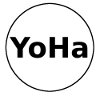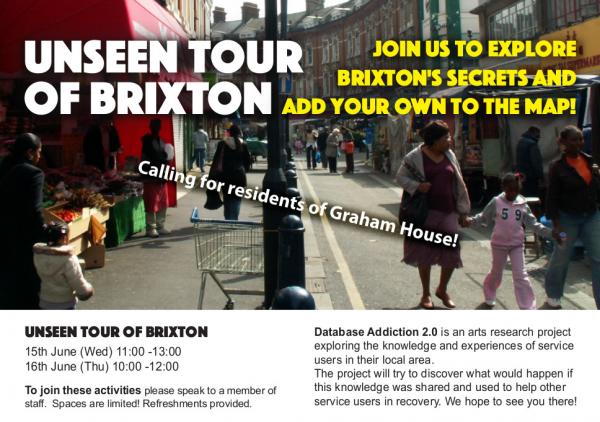
The Undeserving Sick
a problem of sick self.
It is becoming difficult to imagine a world where work does not spill over into the rest of life, emails landing 24/7, increased pressures to achieve more than you are paid for that demonstrate your commitment, creativity and potential to your employer. In London we have the added pressure of trying to find a home to rent that you can afford and secure 'useful' employment to pay for it. What is the alternative to a world where you desire what you can not have, borrow to afford it and consume to gratify the desires that orchestrate your own entrapment. The pressures, anxieties we experience appear as a realism within contemporary capitalism, a space from which we cannot imagine a different society.

The contemporary life pictured above leads many people to spend a lot of time trying to 'get out of their heads', a desirable state that punctuates the tedium, pressures and slow violence of contemporary life. Sing in a church choir, doing an extreme sport or spending hours in the gym, dance till you drop or take illicit substances, or do a little gardening, a bit of online gambling or have a beer or two, a couple of glasses of wine but not too much. Sometimes though, if things are dark or too much it's difficult to not get off your head a little too often. Then all too soon, your time becomes occupied, obsessed by the pursuit of that altered state. That vantage point where you do not have to be yourself but from which you can see yourself anew. You can easily then, become the subject of reckless behavior which we can think of as addicted to actions, substances which we struggle to control.
Desire and consumption are good we are told, for the economy, for the country, apparently helping make it strong and stable. It is then difficult to understand a society that on the one hand applauds the production of desire and consumption to the highest levels of reward and on the other finds it abhorrent when that involves a fairly random group of outlawed chemicals.
What has interested us in the second stage of Database addiction, is what kinds of social, political, technical bodies are born from how society knows what is 'harmful desire and consumption'. What kinds of governance is constructed to monitor and contain those that have transgressed the highly rewarded production of desire and consumption. What critical potential can the subjects of this construction bring to bare through their situated knowledge.
Being addicted is frustratingly hard work, finding substances, food, shelter, care, treatment are complicated formations that require knowledge situated in the actions and reactions of one’s reckless behavior. Service users in the pursuit of care accrue a vast amount of knowledge through observation and actions involved in the pursuit of substances care and treatment, yet this knowledge never enters into the machinery of governance that purportedly cares for them.
The people we have engaged with at the Aurora Project, The Harbour and Lorraine Hewitt House told us how they have tried to contain 'getting off their heads' they have revealed some of the registers of events and stresses that led their desires to get out of control and what they have left behind, or found as they move forward. ( Sam created a system by which people could deposited items, memories, objects in the reading room that would signify this process)
Regaining control can be self imposed such as when a person who on self reflection see flaws in themselves which has led to reckless behavior or it can arise from the criminal justice system or some other external performance of power, social workers threatening to take children into care, or from health professionals, or the parading the immanence of death or serious disease. Whatever the trigger, the moment one imagines or is forced to imagine regaining control, the spectre of a sick self comes into being. This sick self gains traction by being made or making oneself available for the machinery of treatment and care. While common sense would locate the sick self in the body exhibiting reckless behavior. I would like to suggest that seen from another vantage point the sick self becomes an emergent interface to other forms of machines, a political project dislocated from the person exhibiting reckless behaviour. Seen from this perspective the sick self is a body without organs that acts as a conduit through which services, information, chemicals, urine, blood thoughts and actions flow between the reckless body and the nascent body in control. The construction of a sick self creates a body of work, a critical direction of flow toward the body of reckless behavior that distances or obscures the wider social and political conditions that where the pre-conditions of the sick self.
As the sick self begins its mitigation through what is termed a journey of recovery it becomes transversal, a figurable narration to be recorded. A series of modalities, crisis points, triggers and goals that are imposed and that can be policed by not only by the body of reckless behavior but in other medical, political registers too. It becomes a series of insightful critical thoughts from and about the reckless body. It becomes a digital object that break down modalities into a monetised form on a journey of recovery. It becomes the subject of professions, all kinds of architectures, a political object, an economic target or a medical subject. It becomes the subject of YoHa’s art.
In Database Addiction we found that the sick self as described here becomes an object of repression that makes an addict. This addict creates a useful political device, monetised it also creates a method for stopping the situated knowledge held by reckless bodies from being aggregated that could otherwise lead to new knowledge that can formulate a critique of the machinery of recovery.
 bnr#33 => Tantalum Memorial, Manifesta7, Alumix, Bolzano, Italy.
bnr#33 => Tantalum Memorial, Manifesta7, Alumix, Bolzano, Italy.